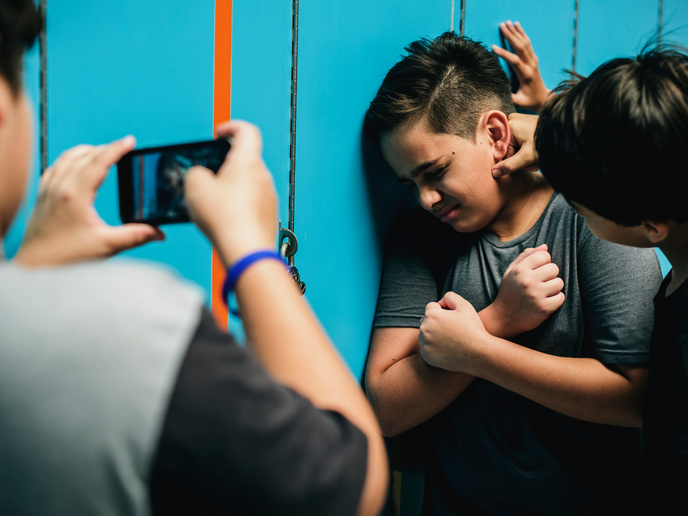Bullying: socially or genetically driven?
Research has linked troubled relationships in adolescence – such as not having friends or being bullied – to psychological and behaviour problems, including anxiety and depression, as well as substance abuse. But according to Tina Kretschmer from the University of Groningen(opens in new window), ”While we know a lot about the more immediate psychological impacts of negative relationships, we know less about how childhood and adolescence relationships shape adulthood relationships, including with offspring.” The CAPE(opens in new window) project, which Kretschmer coordinated, was specifically interested in the intergenerational transmission of aggressive behaviours. To help determine the degree to which these are socially or genetically driven, the study analysed longitudinal data sets, genetic data for over 700 families and a series of in-home observations and interviews. The team’s work has already challenged a standard theory about the psychological impacts of bullying on both victims and perpetrators.
Intergenerational transmission
CAPE, which was funded by the European Research Council(opens in new window), mostly used data from TRAILS(opens in new window), a longitudinal Netherlands study started in 2001 with over 2 700 11-year olds. Still ongoing, with over half the initial intake still participating, the study has yielded data about their psychological and behavioural development, social relationships, education and work. Since 2015, when the participants were of age to start their own families, TRAIL researchers (some contributing to the CAPE study) have made hundreds of home visits to interview participants, sometimes filming parent-children interactions, and interviewing children about their peer relationships. To put the children at ease, the team adapted the Berkeley Puppet Interview(opens in new window). “Two identical puppets make opposing statements, like: ‘I have many friends’ and ‘I don’t have many friends’. A child then agrees with one or expands, with something like: ‘I have more friends than most’, or something more neutral. Responses are coded on a scale,” explains Kretschmer.
Looking to nurture
While the pandemic delayed collection of more in situ data, analysis of parental questionnaires has already yielded results about the links between experiences of childhood peer aggression and self-assessed parental ability. “Early indications suggest that childhood peer experiences don’t seem good predictors of how confident or stressed that person will behave as a parent,” notes Kretschmer. Interestingly, research(opens in new window) has shown that aggression has longer-term health and well-being impacts not only on the victims of aggression but also on the perpetrators, who are often at greater risk of problems such as substance abuse and involvement in crime(opens in new window). Using data from the 1970 British Cohort Study(opens in new window) and the National Child Development Study(opens in new window), CAPE found a statistically significant link between a parent having bullied in childhood and their offspring following suit(opens in new window), especially at similar development stages. Analysis so far suggests that this is not driven principally by parenting behaviour, whereby children learn aggression from parents who had been aggressive themselves when young. “The obvious next step is to investigate whether shared genes explain these expressions of aggression in the two generations,” adds Kretschmer.
Looking to ‘nature’ for explanations
CAPE’s analysis of the 1 604 participants of the TRacking Adolescents’ Individual Lives Survey(opens in new window) has already confounded the standard narrative that victims of bullying typically later internalise problems, while bullies externalise them. “Our analysis revealed that much of the association between bullying and later maladjustment could be explained by an individual’s genetic predisposition for both,” says Kretschmer. “But young parents should still be encouraged to reflect on their own peer relationships and how these experiences might influence those of their children.” Awarded an ERC Consolidator Grant(opens in new window), Kretschmer is now further exploring how developmental history affects parenting and childhood outcomes, alongside the role that genes play in these.



